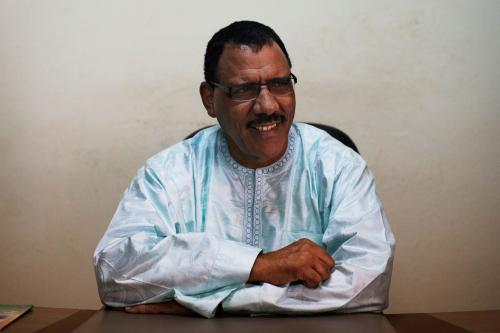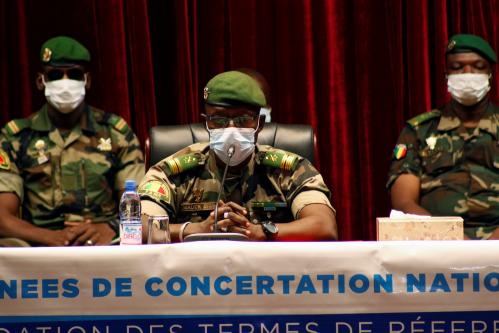Vaccinations are accelerating in Africa
On December 14, the head of Nigeria’s National Primary Health Care Development Agency, Faisal Shuaib, announced that the country will no longer accept COVID-19 vaccines that are close to expiration. This announcement came shortly after the government confirmed that it will destroy 1 million donated doses that had recently expired. On Wednesday, Africa Centers for Disease Control and Prevention (Africa CDC) Deputy Director Ahmed Ogwell Ouma indicated that the Africa CDC is now advising African countries to not accept doses nearing expiration.
In related vaccine news, according to the latest iteration of vaccination data reported by Our World in Data (OWID), vaccine administration in Africa has accelerated in recent months, with the vaccination rate doubling since late September. In fact, more than 260 million doses—including 650,000 booster shots—have been administered on the continent this year. Increased vaccination in Africa has coincided with increased global COVID-19 vaccine production, which is now 1.5 billion doses per month.
However, also on December 14, the World Health Organization (WHO) announced that COVID-19 cases in Africa increased by 83 percent this past week. According to the WHO, the rising case count stems from the increased prevalence of the delta and omicron variants on the continent. New cases are doubling every five days, the shortest such window that the WHO has observed this year. Despite the spike in COVID-19 cases, deaths in the region have not begun to rise.
Growing citizen dissatisfaction in Burkina Faso as other countries grapple with delayed elections
On December 11, Burkina Faso’s president, Roch Marc Christian Kabore, announced that Lassina Zerbo, former executive secretary of the Comprehensive Nuclear-Test-Ban treaty Organization (CTBTO), would be the country’s new prime minister. The announcement comes after the exit of now-former Prime Minister Christophe Dabire on December 8. Kobre’s administration has recently been under pressure as citizen dissatisfaction grows due to the yearslong security crisis in the country.
Also on December 11, Libya’s election commission stated it would be delaying the publication of the list of presidential candidates until some legal issues are resolved. Notably, with elections scheduled for December 24, there will be little to no time remaining for the final list of candidates to campaign across Libya due to the delayed publishing, according to VOA.
In other political news, on December 13, leaders from the Economic Community of West African States (ECOWAS) demanded that the ruling junta in Mali adhere to the agreed-upon deadline to hold elections no later than February 27. If Mali does not begin the process in January, ECOWAS will impose sanctions, says the president of ECOWAS, Jean-Claude Brou. Earlier that day, the head of Mali’s government had promised to provide ECOWAS with an election timetable by the end of January 2022.
Also related, Tunisia’s President Kais Saied said on Monday that the country’s parliament would remain suspended until the elections set for December 2022 and called for a referendum on constitutional reforms to be put forward on July 25. Saied stated he would appoint a committee of experts to draft a new constitution ahead of the referendum. However, on Thursday, Tunisia’s Speaker Rached Ghannouchi refused to suspend parliament for another year on the grounds it would be “unconstitutional and illegal.”
Protests over Royal Dutch Shell’s plans for seismic oil exploration in South Africa; an uncontained oil spill in Nigeria sparks protests; East Africa’s coral reefs at risk of extinction by 2070
Responding to protests over Royal Dutch Shell’s plans for seismic oil exploration along 6,000 square kilometers of South Africa’s Wild Coast earlier this month, South Africa’s energy minister defended the company’s plans for oil surveying and welcomed more investment inflows into the country’s energy sector. Efforts in court by Greenpeace Africa and local fishermen to stop the surveying were nonetheless struck down earlier this month, since “irreparable harm to marine species was not proven by the applicants.” Notably, last year, however, the U.S. government refused to renew permits for similar seismic oil surveys on the Eastern Seaboard, following similar objections.
In related news, the Nembe community in Nigeria continues protests calling for action to resolve a blown-out oil and gas well in Bayelsa State in southern Nigeria. The wellhead, which has been leaking for over a month, has contaminated the Santa Barbara River in the Niger Delta with more than 2 million barrels of crude oil and gas. The wellhead, is owned by Aiteo Eastern E&P, Nigeria’s largest domestic oil firm in 2015, and is among nearly 5,000 oil spills documented in Nigeria over the past six years.
Last week, a study published in the journal Nature Sustainability concluded that the coral reef system in the western Indian Ocean along the eastern shores of Africa are at risk of becoming functionally extinct within 50 years, citing rising ocean temperatures and overfishing of top predator species. The authors of the study predict that the collapse of East Africa’s coral reefs—marked by the bleaching of their vibrant colors—will diminish fishery output, harming low-income communities that depend on fishing for their livelihoods and as a source of food, as well as hamper tourism in East Africa.







Commentary
Africa in the news: Vaccine, politics, and natural resources updates
December 18, 2021